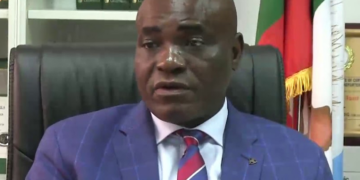The World Energy 2023 report has unearthed a staggering decline of 92% in Nigeria’s crude oil refining output over the past ten years, raising concerns about the country’s energy sector.
From a robust production level of 92,000 barrels per day (bpd) in 2012, the output plummeted drastically to a meagre 6,000 bpd in 2022, representing a significant drop in refining capacity.
This disconcerting data, detailed in the 72nd edition of the Energy Institute’s report, corroborates the findings in the Organisation of the Petroleum Exporting Countries’ (OPEC) Annual Statistical Bulletin 2023.
OPEC’s report also highlighted Nigeria’s sharp decline in crude oil refining capacity from 33,000 bpd in 2018 to 6,000 bpd in 2022, signifying an 81% decrease in production output.
Despite Nigeria’s possession of four government-owned refineries—two in Port Harcourt and one each in Warri and Kaduna—with a collective capacity to process approximately 4.45 million barrels of crude oil daily, the country remains heavily reliant on importing refined petroleum products.
In response to the crisis, the Minister of State for Petroleum, Heineken Lokpobiri, previously announced plans for the Port Harcourt refinery to commence operations by the end of the current year after several delays.
Echoing this sentiment, Mele Kyari, the Group Chief Executive Officer of the Nigerian National Petroleum Corporation Limited (NNPCL), affirmed that the Port Harcourt refinery is slated to commence operations in December 2023, followed by the Warri refinery in early 2024 and the Kaduna refinery by the end of the same year.
During a meeting with the Speaker of the House of Representatives, Tajudeen Abbas, Kyari expressed confidence in ending fuel importation by 2024, aiming to restore the nation’s self-sufficiency in refined petroleum products.
“I can confirm to you that by the end of December this year, we will start the Port Harcourt refinery; early in the first quarter of 2024, we will begin the Warri refinery, and by the end of 2024, the Kaduna refinery will come into operation.
“We will no longer discuss fuel importation by the end of 2024. I am very optimistic that this will crystallize,” he said.
The looming deadline set by the federal government under President Bola Ahmed Tinubu intensifies efforts to revitalise and restore Nigeria’s refinery operations, striving to salvage the country’s energy sector from the brink of collapse.




